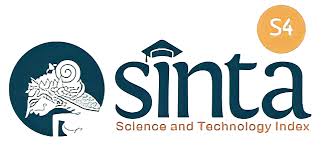Dominasi Patriakhi dan Marginalisasi Tokoh Perempuan Subaltern dalam Novel Lail wa Qudbhan Karya Najib Al-Kailani
DOI:
https://doi.org/10.37680/linguafranca.v4i1.7794Keywords:
Domination, Gayatri Spivak, marginalization, Najib al-Kailani, subaltern womenAbstract
This article examines the forms of domination and marginalization of subaltern female characters in the novel Lail wa Qudhban by Najib al-Kailani, using a postcolonial literary criticism approach, especially Gayatri Chakravorty Spivak's subaltern theory. This research uses a qualitative-descriptive method through critical reading techniques and textual analysis. The primary data in this research is the novel Lail wa Qudbhan by Najib al-Kailani. In contrast, the secondary data in this research are books, scientific works containing Gayatri Chakravorty Spivak's postcolonial and subaltern theory, Najīb al-Kaylānī's biography and thoughts, and relevant references, both previous studies or research on this novel. Data collection uses documentation techniques, hermeneutic reading, and recording and classification of quotations. The data analysis technique uses descriptive-analytical. The results of the study show that the female character (Inayat) in the novel experiences structural and layered domination and marginalization, which originates from four main factors: (1) gender-biased interpretation of religious teachings, (2) customs that legitimize inequality, (3) social construction that silences women, and (4) negative stereotypes against women. The character of Inayat in the novel is presented as a subject who experiences symbolic and social limitations, but at the same time has hidden potential for resistance. This study emphasizes the importance of a postcolonial approach in revealing the layers of power hidden behind the representation of women in modern Arabic literature.
Downloads
Published
How to Cite
Issue
Section
License
Copyright (c) 2025 Rahimal Khair, Hidia Tarauni

This work is licensed under a Creative Commons Attribution-NonCommercial 4.0 International License.
Lingua Franca: Jurnal Bahasa dan Sastraallow the author(s) to hold the copyright without restrictions and allow the author(s) to retain publishing rights without restrictions, also the owner of the commercial rights to the article is the author.
License:
- Attribution: You must provide an appropriate name, include a link to the license, and certify that changes have been made. You can do this in an appropriate manner, but do not imply that the licensor supports you or your use.
- Share Alike: If you compose or make derivatives of these materials, you must distribute your contributions under the same license as the original materials.
- No additional restrictions: You may not use legal provisions or technological means of control that legally restrict others from doing the things this license allows.
You are free to:
- Share, copy, and redistribute this material in any form or format.
- Adapt, modify, and create derivatives of this material for any purpose, including commercial purposes.
- The licensor cannot revoke the above terms as long as you comply with the terms of this license.
Creative Commons Attribution-ShareAlike 4.0 International License (CC BY-SA 4.0).






